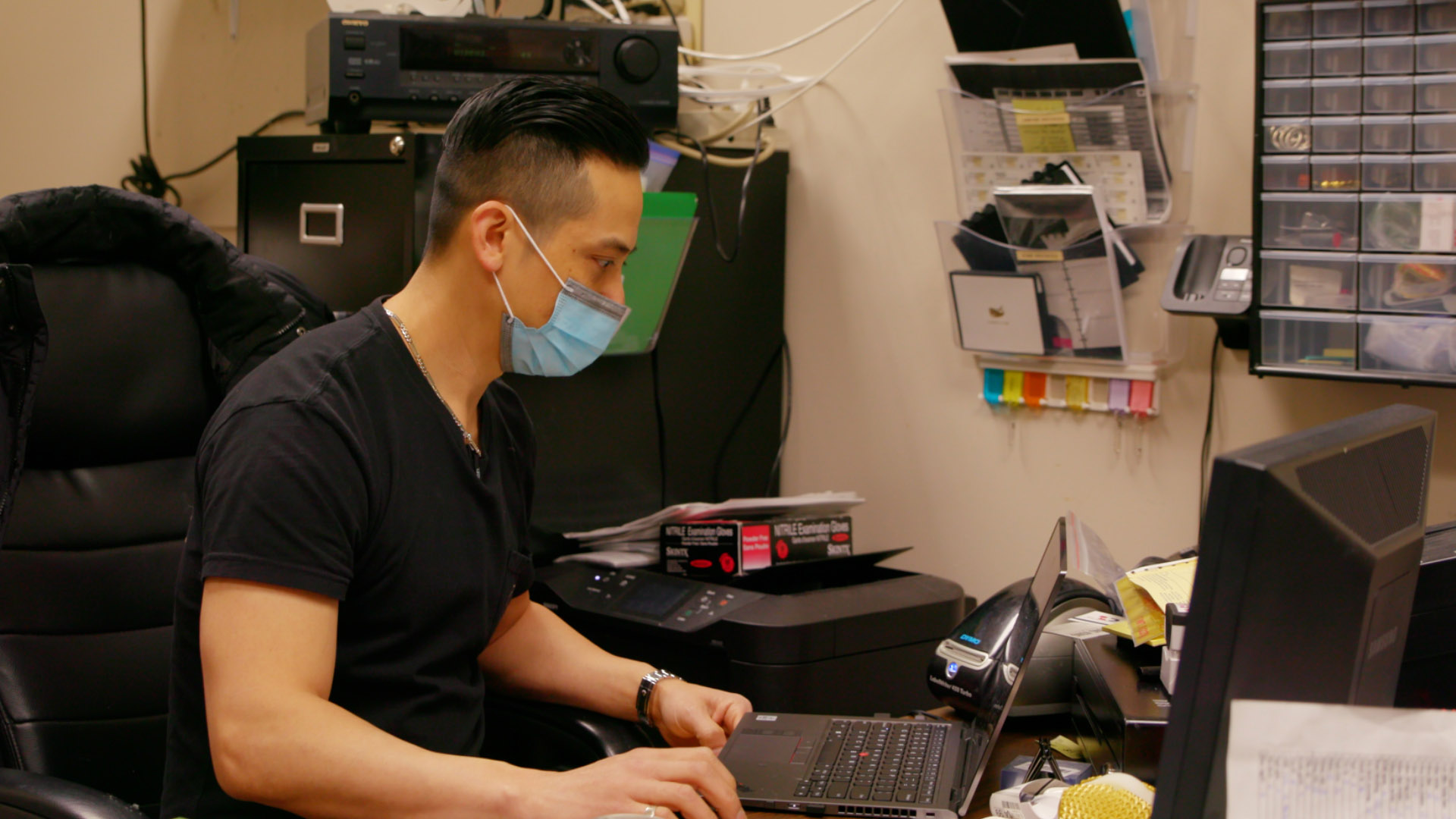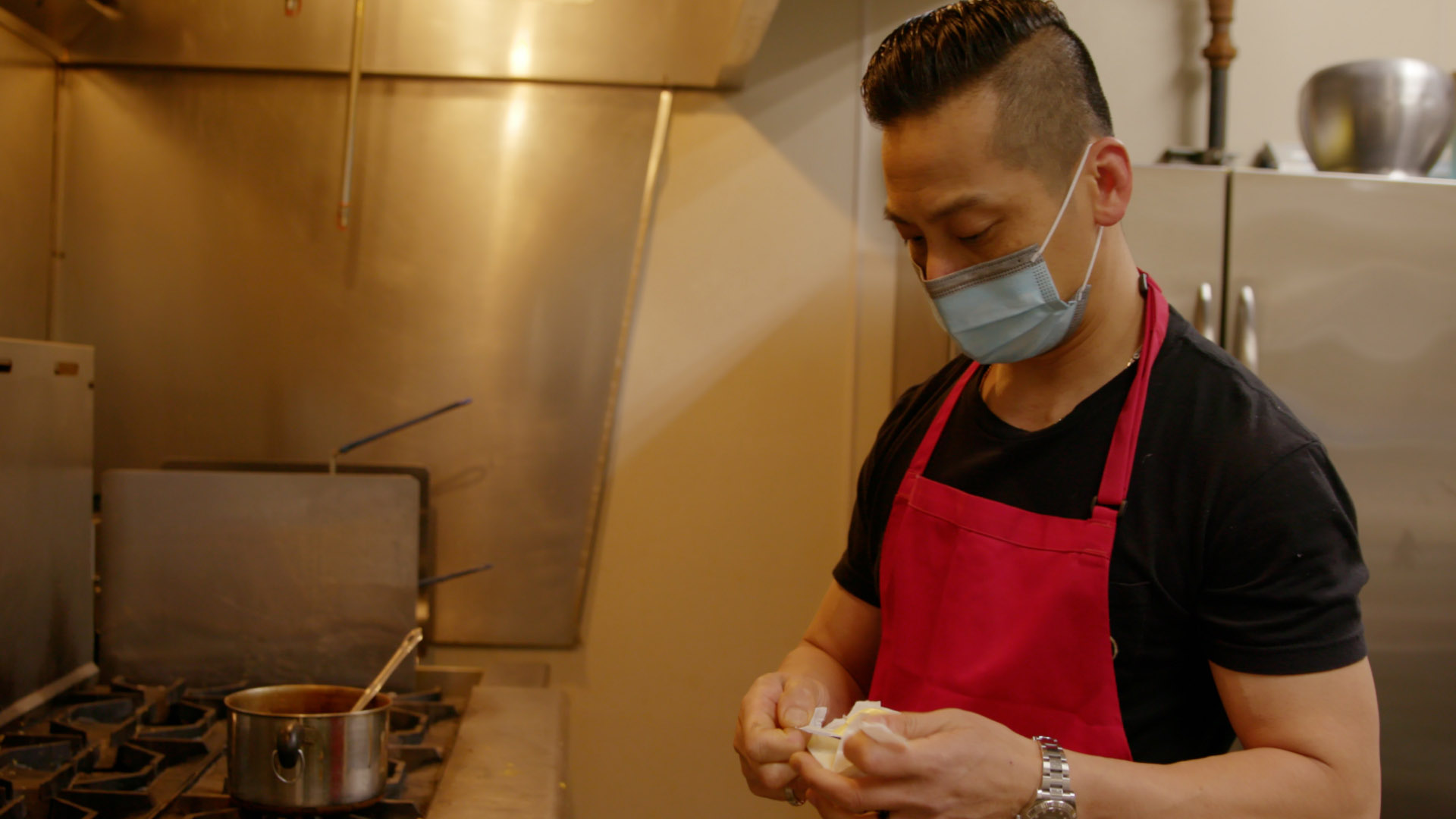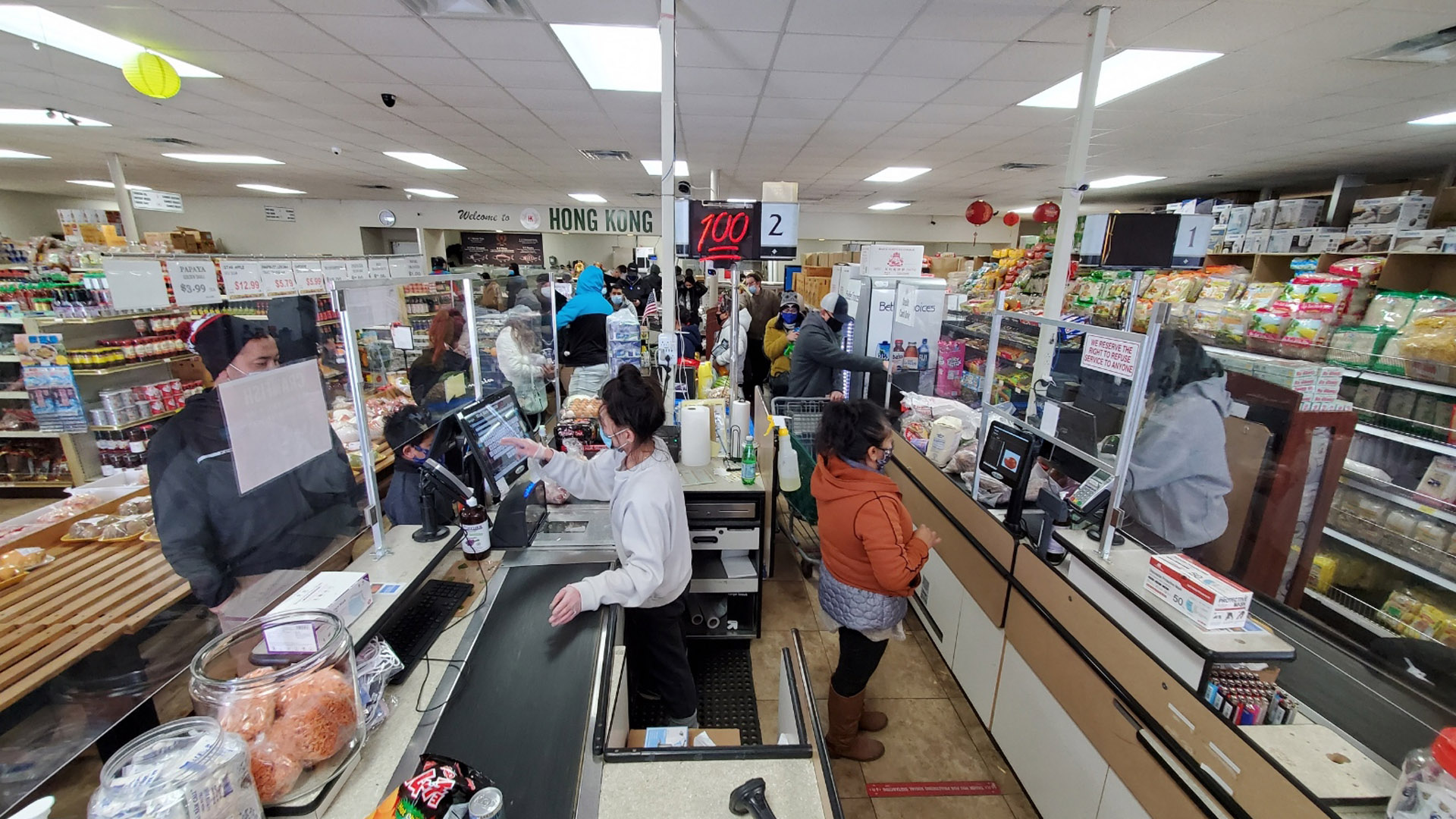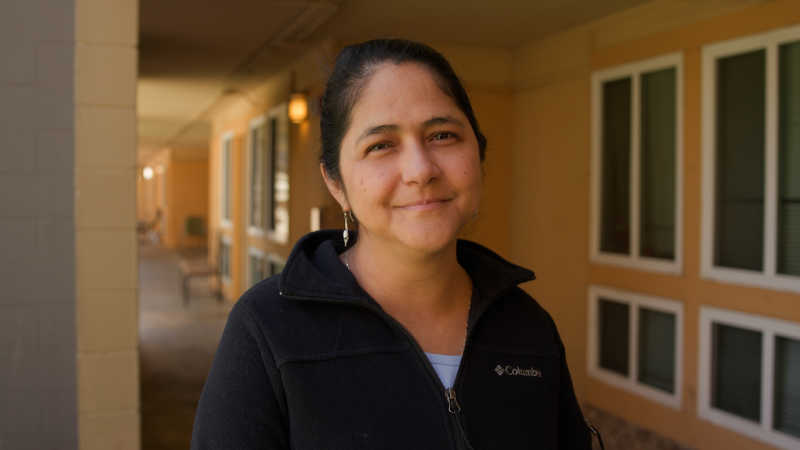Your Friendly Neighborhood Store
It's just after 9 a.m. at Hong Kong Supermarket in North Austin and owner Dat Lien is making sure shelves are stocked for the first customers of the day. The calm of this moment is a sharp contrast to just weeks before when Texas was cast into chaos.
“The winter storm, it was pretty crazy,” Lien says. “We had power and we had water most of the time so we were able to stay open.”
Although the grocery store specializes in imported Asian foods, the store also stocks American grocery staples like eggs, produce and non-perishables. So, when many stores closed due to power and water outages during the storm, Hong Kong Supermarket saw an influx of new customers.
“We did get customers like that, that I've never seen in there, and we were like, ‘Oh, wow’,” Lien says.
Dat Lien types in inventory numbers on his laptop in the back room office at Hong Kong Supermarket. Lien grew up in the office watching his father run the business.
Hong Kong Supermarket started like many other Vietnamese American owned businesses. Lien and his family immigrated to the U.S. in the late 1970s from a refugee camp in Malaysia after fleeing from the Vietnam War. They settled in Austin where his father, Minh Lien, co-founded a shopping center on Research Boulevard.
“It didn't seem like much was going on [there]. And then he came in and he put a sign up,” Lien says. “[He] picked up supermarket equipment that he would buy from different places and then come and put the shelves up and put the floors down.”
The first iteration of Hong Kong Supermarket opened its doors in 1992. After his father leased it out to other owners in 1997, Dat Lien reopened the store in 2013. Having grown up in the adjacent neighborhood, he’s witnessed the vast changes in the area.
“It wasn't as diverse as it is these days,” Lien says. “There weren't very many Asian businesses, restaurants to choose from.”
Many Asian American owned grocery stores in Austin are located in areas with a dense Asian American population. According to census data from 2014, about 10 to 15% of the population in the neighborhood near Hong Kong Supermarket is of Asian descent. But during the winter storm, Lien says the store had new customers from many different backgrounds.
“Once they saw an open store, people just started coming in and coming, and you see all kinds of crowds walking up,” Lien says.
While regulars to the store typically shop for certain items, during the winter storm the less familiar customers grabbed whatever they could. Minh Lien made frequent trips to his suppliers in Houston to keep shelves stocked with bottled water and non-perishable items.
“The register lines were like around the store,” Dat Lien says.
Lien struggled with keeping shelves stocked and being short staffed. But what weighed the heaviest on him was something that many other businesses were dealing with too.
Dat Lien peels open a stick of butter to use in a marinade to sell with live crawfish in the kitchen area of Hong Kong Supermarket. Lein was able to sell fresh seafood and produce during the winter storm.
“We were mostly just concerned about like, well, what if we lose power and water here too? You know? Cause we didn't have power at home,” Lien says. “It was freezing cold, you know, it was hard.”
Lien says the reason why new customers only venture into the store during a disaster has to do with knowledge.
“I think a lot of times what's going to be the barrier that's going to stop you from going someplace, it's like if you don't know what it's about,” Lien says. “That's the big thing that causes people to not swing by, you know, they don't know that there is something that they like there until you go and discover.”
While the winter storm created new challenges for Asian American businesses, many struggled with other issues before the storm. According to a national report, 103 incidents of hate against Asian Americans have been reported in Texas since March 19 of last year. Eric Tang is an associate professor in the African and African diaspora studies department and director of the Center for Asian American Studies at The University of Texas at Austin. He says racist rhetoric during the pandemic has caused a recent uptick in violence, but the issue of racism against the Asian American community runs deeper.
“[Asian Americans] have consistently been enlisted as the scapegoats that bring into fruition U.S. nationalism, nativism, patriarchy, white supremacy,” Tang says. “And this is exactly what former President Trump did by referring to Covid as the ‘China virus,’ as the ‘kung flu.’ He was tapping into America’s intimate knowledge of the Asian as a scapegoat.”
Tang says that historically, racism against Asian Americans has even played a role in the creation of Asian American shopping centers.
Dat Lien’s wife, Michelle Lien (left), checks out customers during the winter storm. Lien and his staff saw an unusual amount of customers that week including folks they had never seen shop in the store before. Photo courtesy of Dat Lien.
“The reason that these stores exist has to do with how Asians have been segregated from the formal economy,” Tang says. “The idea that these Asian grocery stores are outside of the mainstream isn’t something that Asians have purposely done to themselves, it's something that has been done to them.”
The stereotypical image of Asian Americans being seen as perpetual foreigners is what Lien wants to demystify.
“I think it's important to maintain who you are. It's not just so much like being an Asian market,” Lien says. “We are an Asian market, you know, we're also an American market.”
Since the winter storm, Lien has seen some of those new customers return and regardless of their background, he says everyone is welcome at Hong Kong Supermarket.
“It's just another business,” Lien says. “It is different, but you know … we're a lot more the same than we are different.”
Community journalism doesn’t happen without community support.
Got story ideas, advice on how we can improve our reporting or just want to know more about what we do? Reach out to us at news@klru.org.
And if you value this type of reporting, then please consider making a donation to Austin PBS. Your gift makes the quality journalism done by the Decibel team possible. Thank you for your contribution.
More in Business:
See all Business posts








Contact Us
Email us at news@klru.org